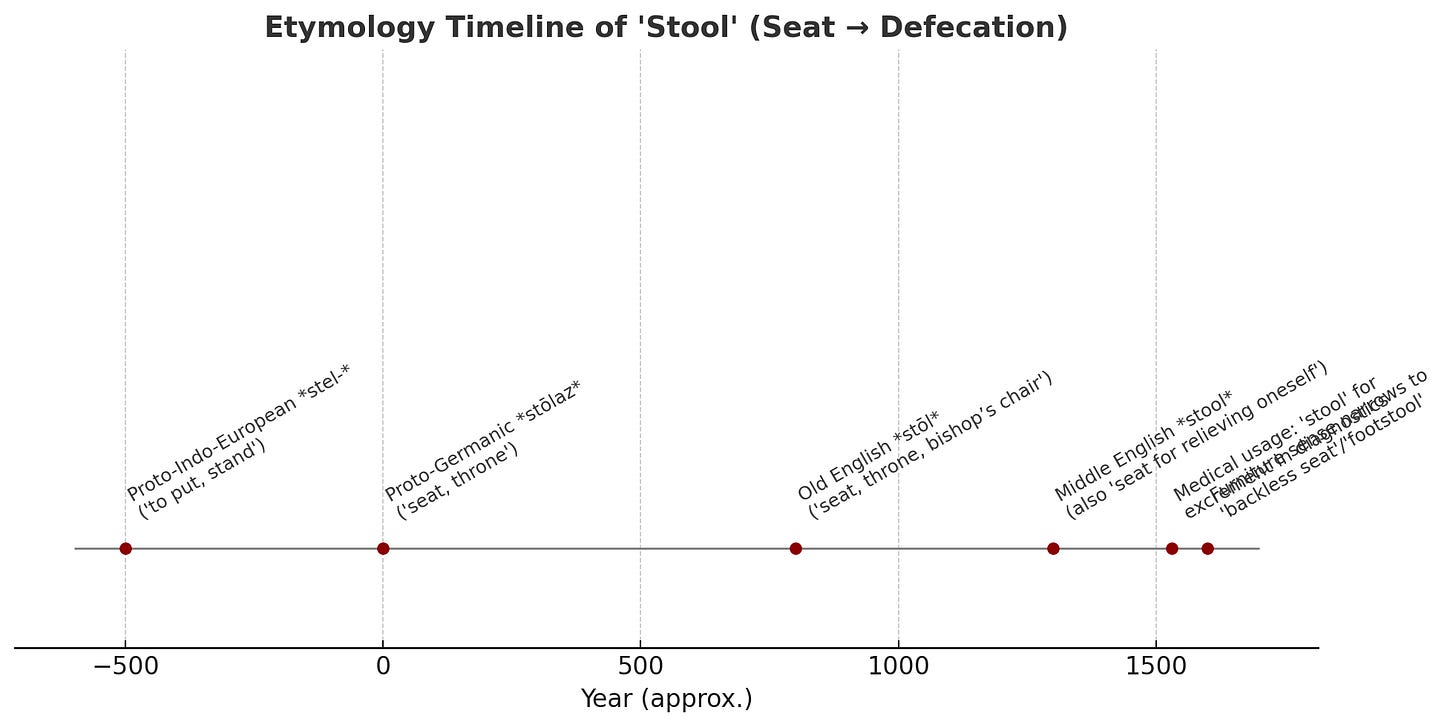Have you ever wondered why Biblical translations are difficult?
Analogy for translation challenges.
Have you ever wondered why Biblical translations are difficult? Part of it is the target language. English makes a large mess of words and terms. So we will demonstrate this difficulty with the word stool, from its meanings of Backless Chair, and Feces.
The word stool in both senses—a seat and excrement—shares the same Old English root, but the meanings diverged over time.
1. Stool as “a seat” or “something to stand on”
Old English: stōl — meaning “seat, chair, throne, elevated place for sitting.”
Proto-Germanic: stōlaz — also “seat” or “throne.”
Cognates appear in:
Old Saxon stōl
Old High German stuol
Old Norse stóll
Gothic stôls
Proto-Indo-European root: stel — “to put, stand, set in place.”
Semantic development: In Old English, stōl was often a raised seat or bench, sometimes specifically a bishop’s seat (hence “cathedral” from cathedra in Latin serving the same purpose). By Middle English, “stool” included backless seats, footstools, and, later, the portable or humble seating we think of today.
2. Stool as “feces”
This meaning comes from the same root, via the idea of a seat for defecation.
In Middle English (14th century), “stool” could mean:
The seat used for relieving oneself (“stool of ease”).
By metonymy, the product of defecation itself.
This transfer of meaning follows a common linguistic pattern where the name of a receptacle or tool becomes the name of its contents (compare “pot” for chamber pot, “pail” for a bucket of something).
By the 1530s, English medical writing used “stool” in the sense of bodily waste in diagnostic contexts (“examine the stools for signs of illness”).
Summary of Divergence
Both senses trace back to Old English stōl “seat,” but:
Furniture sense stayed literal → “seat” → “backless seat” → “footstool” / “something to stand on.”
Medical/bodily sense shifted via euphemism/metonymy → “seat for relieving oneself” → “the evacuation itself.”
Here’s the timeline diagram showing how stool evolved from the Proto-Indo-European root for “to put/stand” into its two main senses—furniture and excretion—over the centuries.
If English cannot keep the simplicity of one word straight, then how do you handle 100s of words, with a smaller alphabet, and sometimes misunderstood context straight?
However, this is by no means impossible. There are other sources, like historical documents, that date within a 100 years of some events in the bible, and other historical artifacts.
There are specialty courses that focus on these types of issues in universities. It is entirely worth the investment in time, if you live for the challenge of history, to take the courses, and become the next researcher who finds a new document, decides if it fits, and how.
At this point, if you are honest, you are going to find something to build up the faith, or end an argument, if you are so lucky to find that document.


